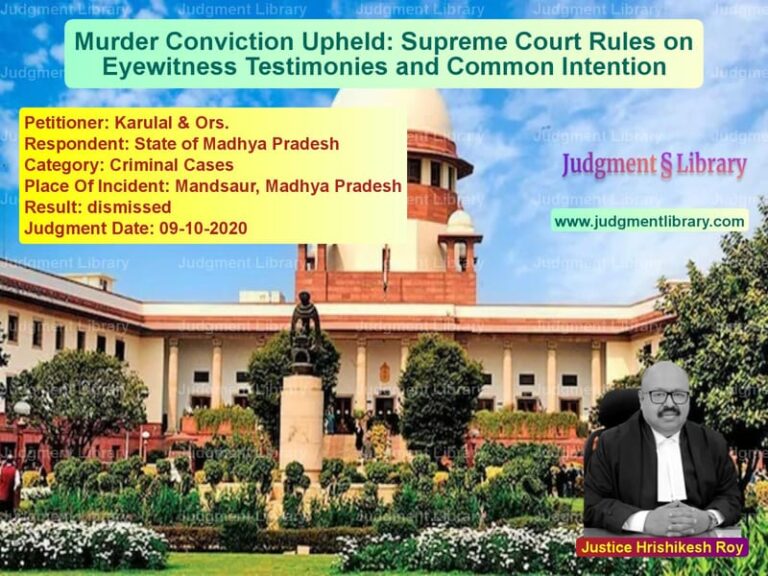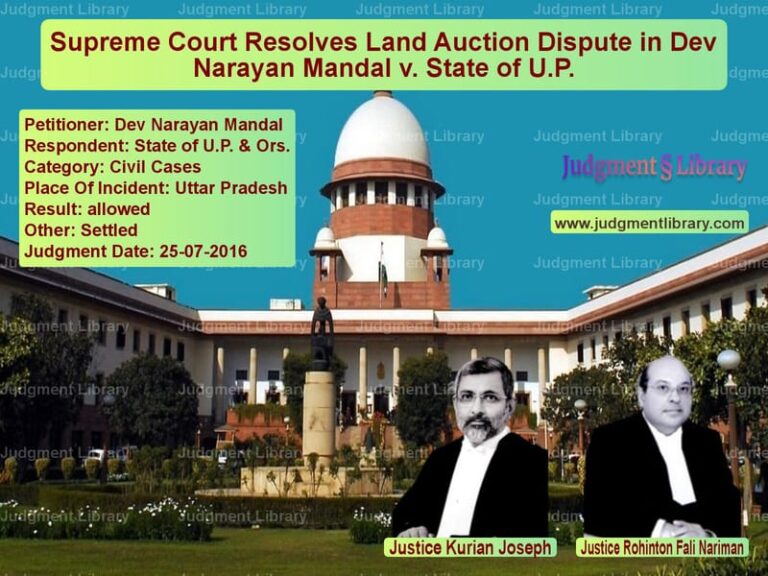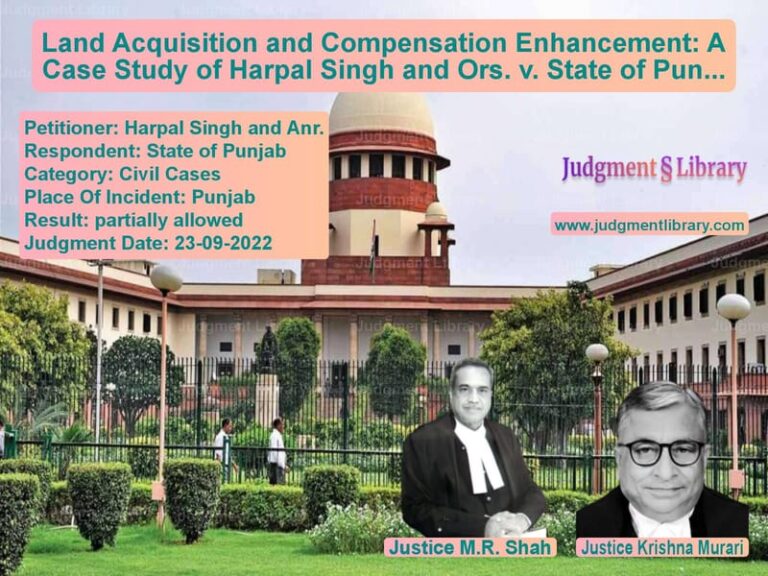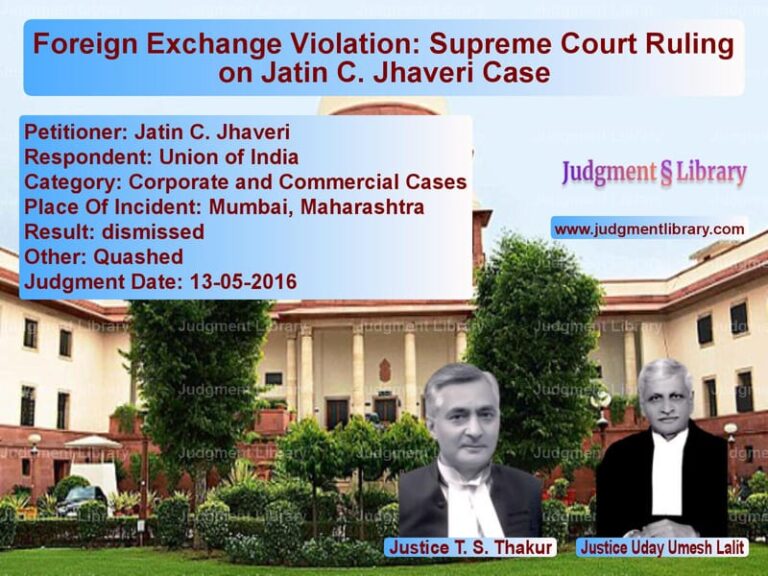Legal Dispute Over Sugar Stock: Co-operative Credit Societies vs. State Authorities
The case involves a dispute regarding the financial claims over pledged sugar stock, leading to a legal battle between cooperative credit societies and state authorities. This case addresses the rights of secured creditors, priority of financial recoveries, and the legal principles governing pledged goods.
Background of the Case
The appellants, Sahyadri Co-operative Credit Society Ltd. and Navhind Co-operative Credit Society Ltd., are multi-state co-operative societies that provide financial services, including accepting deposits and granting loans. The dispute arose when these societies extended substantial loans to Daulat Shetkari Sahakari Sakhar Karkhana Ltd., a financially distressed sugar mill.
The loans, amounting to Rs. 7 crore and Rs. 12.2 crore, were secured by pledging sugar stocks stored in designated godowns. The appellants had obtained the necessary consent from the borrower and regulatory approvals to ensure the legal validity of the pledge.
However, due to financial distress, the borrower defaulted on the loan payments. As a result, state authorities intervened, citing pending dues of sugarcane growers and workers. The authorities decided to conduct a public auction of the pledged sugar stock to recover the dues, leading to a legal conflict over the distribution of the auction proceeds.
Legal Dispute and Arguments
After the auction, the proceeds were deposited with the High Court, which initially directed that the distribution of funds should prioritize secured creditors. Despite this, the Collector of Kolhapur ruled that dues to provident funds and cane growers took precedence over the claims of the appellants.
Challenging this ruling, the credit societies filed writ petitions in the Bombay High Court. However, the High Court dismissed their petitions, citing the availability of an alternative remedy under Section 218 of the Maharashtra Land Revenue Code. The appellants argued that their claims were independent of the Land Revenue Code and that their rights as secured creditors should be upheld.
The appellants emphasized that they had legally secured their loans through the pledge of sugar stocks and relied on previous judicial determinations that affirmed their entitlement to the pledged goods. They contended that state authorities had no right to prioritize unsecured claims over their legally secured interest.
Respondent’s Arguments
The state authorities argued that dues to workers and sugarcane growers should take precedence as per the provisions of the Maharashtra Cooperative Societies Act and other statutory regulations. They contended that the well-being of workers and farmers was a matter of public interest, justifying their decision to prioritize these payments.
Additionally, they asserted that Section 218 of the Maharashtra Land Revenue Code provided an alternative mechanism for the appellants to claim their dues, thereby making the High Court’s dismissal of their petitions justified.
Supreme Court’s Judgment
The Supreme Court carefully examined the legal issues at stake and the precedents set by previous judgments. The Court noted that in an earlier decision, the Bombay High Court had acknowledged the pledge in favor of the appellants and directed authorities to consider their claims in disbursing the funds.
The Court referred to the landmark case of Central Bank of India v. Siriguppa Sugars & Chemicals Ltd., which established that secured creditors hold a preferential right over pledged goods compared to unsecured claims of cane growers and workers. Based on this principle, the Court ruled in favor of the appellants.
The Supreme Court found that the Bombay High Court had erred in dismissing the writ petitions and set aside the High Court’s judgment. It directed the concerned authorities to prioritize the appellants’ claims in the distribution of auction proceeds, reaffirming the principle that secured creditors have precedence in financial recoveries involving pledged goods.
Conclusion
The judgment underscores the importance of secured transactions in financial law and upholds the principle that legally pledged goods cannot be arbitrarily diverted to satisfy unsecured claims. This ruling provides clarity on the rights of financial institutions in cases of loan defaults and ensures that the legal framework for secured lending remains robust.
Don’t miss out on the full details! Download the complete judgment in PDF format below and gain valuable insights instantly!
Download Judgment: Sahyadri Co-operativ vs The State of Maharas Supreme Court of India Judgment Dated 28-03-2016-1741853975677.pdf
Direct Downlaod Judgment: Direct downlaod this Judgment
See all petitions in Contract Disputes
See all petitions in Debt Recovery
See all petitions in Judgment by Ranjan Gogoi
See all petitions in Judgment by Prafulla C. Pant
See all petitions in allowed
See all petitions in supreme court of India judgments March 2016
See all petitions in 2016 judgments
See all posts in Civil Cases Category
See all allowed petitions in Civil Cases Category
See all Dismissed petitions in Civil Cases Category
See all partially allowed petitions in Civil Cases Category







